Herpes, also called cold sores or cold sores, is a painful infection caused by the herpes simplex virus. Rashes can appear anywhere on the body but most often appear on the gums, the outside of the mouth and lips, the nose, cheeks, and fingers.
HERPES: Herpes General | Herpes Images | Symptoms | Consult a doctor | Causes | Diagnostics | Treatment | Conventional Medicine | Alternative way | Home remedies | Prevention | Questions and Answers | Sources/references
DECEPTIONS: 1. deception | 2. deception | 3. deception | 4. misleading
First, bubbles are formed, which then burst and ooze out. Then a yellow scab is formed, finally peeling off, and under it is already new skin. Herpes usually lasts 7 to 10 days.
90% of people get herpes at least once in their life. The first appearance of herpes is usually the worst. Some children affected by herpes can become very seriously ill. After the first infection, many people develop antibodies and never get herpes again.
Although herpes is mostly not a severe disease, the infection can be life-threatening for people who have AIDS or who have a suppressed immune system due to other disorders or medications.
Video content: Herpes - a gift that is not...

In babies who contract the disease during childbirth, the virus can spread to other organs and can cause severe complications and even death.
1. DECEPTION: a condom completely prevents the transmission of herpes
Ugh, if only it were true. Condoms provide excellent protection but are certainly not 100% protected against infection. Genital herpes is a highly contagious form of herpes; the likelihood of infection increases significantly if you have several sexual partners. In an active infection, the best decision is to stop sexual relations temporarily.
Herpes infection can cause blindness if it spreads to the eyes, so herpes is a common cause of infectious blindness.
Herpes Images

Picture: showing the different forms of herpes - herpes does not only appear on the lips.
Symptoms
- Fluid-filled blisters or red and painful sores on or near the mouth or fingers.
- Swollen and sensitive gums, dark red.
- Fever, flu-like symptoms, and swollen lymph nodes in the neck often accompany the first onset; however, repeated outbreaks of herpes usually no longer trigger these symptoms.
CONSULT YOUR DOCTOR IF:
- You have a high fever and chills; high heat can be dangerous.
- The sores are excruciating; you can get a prescription drug to relieve your symptoms.
CAUSES
Herpes is caused by the herpes simplex virus, transmitted through various contact forms, such as kissing an infected person or sharing eating utensils and towels. In addition, a person with herpes who has oral sex with another person can transmit herpes to that person's genitals (genital herpes).
2. MISTAKE: Canker sores are the same as herpes on the lips
It won't hold. Canker sores are those unpleasant and painful discomforts inside your mouth and are not caused by viruses. On the other hand, cold sores tend to occur outside the oral cavity, often on the lips.
The HSV-1 virus, the causative agent of herpes, lives in the trigeminal ganglion, a nerve just behind your cheekbone - and is activated occasionally, especially when your body is on the ground.
Herpes can develop up to 20 days after exposure to the virus. However, once the virus enters the body, it can erupt only years later, namely in the same place or close to the place of invasion.
Video content: how contagious is it?

Before starting, you may feel tingling or increased sensitivity in that place. This is because certain types of food, stress, heat, allergies, sunburn, or menstruation can trigger the virus.
DIAGNOSTIC PROCEDURES
Maybe your doctor will take a swab from your blister or examine and confirm your infection with this virus.
HEALING
You can't cure herpes, but you can ease the pain that always accompanies herpes by avoiding spicy and acidic foods, applying ice, and using over-the-counter medications.
3. MYTH: Herpes is contagious only during an outbreak
Unfortunately, it won't hold, but taming this infectious virus would be much easier if it did. Even when there is no outbreak, there is a risk of the so-called asymptomatic secretion of the virus on the surface and, thus, a possible infection.
Look for medications that contain a numbing agent, such as phenol, and ointments that reduce cracking and soften scabs. To speed healing, apply a water-based zinc ointment when you feel the tingling sensation that typically heralds a herpes outbreak.
CONVENTIONAL MEDICINE
If the cold sore is painful or irritating, your doctor will prescribe an anesthetic gel to ease the pain.
ALTERNATIVE MODES
There are several different treatments to speed up healing and prevent recurrence of herpes.
AROMATHERAPY
Apply geranium (Pelargonium odoratissimum) or eucalyptus (Eucalyptus globulus) oil to cold sores, or apply it every hour, which can reduce pain and speed up healing. Aromatherapists also claim that tea tree oil (Melaleuca spp) has antiseptic properties.
HERBS
Herbalists advise witch hazel (Hamamelis virginiana) to dry up herpes. To accelerate
WARNING
Herpes infections can spread to other babies' organs and cause serious illness. If your baby has cold sores and a fever, call the doctor. If you have AIDS or a suppressed immune system or are taking medication after an organ transplant, be careful not to get herpes. If you touch the herpes blister and then the eye, you may get a sore or ulcer on the cornea, which is also a herpes infection.
Healing is recommended by extracts of echinacea (Echinacea sppj, nettle (Urtica dioica), Hydrastis (Hy-drastis Canadensis), and myrrh (Commiphora molmol).
MEDICINE OF SPIRIT AND BODY
Herpes is often triggered by stress. Try deep muscle relaxation with the help of relaxation, biofeedback, guided performances, and meditation.
Don't forget to exercise regularly because activity strengthens your immune system and thus defends you against this virus.
NUTRITION
The herpes virus feeds on the amino acid arginine. So avoid nuts, chocolate, and seeds. Instead, eat foods that are rich in lysine. These are the main types of beans and peas and corn.
4. DECEIT: The drug can completely cure herpes.
Unfortunately, for once, there is no such medicine yet. Instead, there are antiviral drugs that make the herpes outbreak much more accessible so that it is not so painful and annoying. This type of medicine also reduces the possibility of transmission.
If you have herpes more than three times a year, take a 500 mg lysine supplement daily. Double the dose as soon as you feel that herpes will appear again.
HOME REMEDIES
- Apply ice to the area for 15 minutes to ease the pain.
- Apply oil with vitamin E for faster healing of cold sores.
- Use a lip balm with SPF 15 for sun protection.
- Cover the cold sore with petroleum jelly.
PREVENTION
- Do not kiss someone with herpes or use utensils, towels, or shaving accessories.
- Wash your hands after touching a cold sore.
- Do not rub your eyes after touching a cold sore; you can get herpes on the cornea, leading to blindness if not treated properly.
- Don't touch your genitals after you have touched herpes; you may get genital herpes.
- Change the toothbrush.
- Avoid foods containing arginine.
- Eat foods rich in lysine or take lysine supplements.
Frequently Asked Questions and Answers
What is interesting about herpes simplex?
Key facts about herpes:
Approximately 80% of people infected with genital herpes do not know that they have this type of virus, as they have very mild symptoms or none. In addition, 75% of people with genital herpes get it from people who don't even know they have it[1].
Can I kiss someone if I have herpes simplex?
Yes, you can kiss someone with herpes simplex without developing an active outbreak or contracting the virus. However, because the HSV-1 version of the virus is so highly contagious, kissing someone with an active infection means that you are very likely to contract the virus[2].
Does the herpes virus weaken with age?
As a person ages, the virus loses some of its 'evil' ability," says specialist Kelly-Jones. This means that herpes is less likely to break out in your body actively.[3].
Does herpes affect the brain?
Herpes meningoencephalitis is an infection of the brain and meninges caused by the herpes simplex virus. Urgent medical attention is required, and this type of condition requires immediate treatment[4].
Sources and references
Source: Family Health Guide. Conventional and alternative treatment, Dr. Jaro Lajovic, Publishing House Mladinska knjiga
1. The Key Facts About Herpes - https://www.herpes.org.nz
2. CAN YOU GET HERPES FROM KISSING? - https://khealth.com
3. 8 Facts You Never Knew About Herpes - https://www.womenshealthmag.com 4. Herpes Meningoencephalitis - https://www.hopkinsmedicine.org





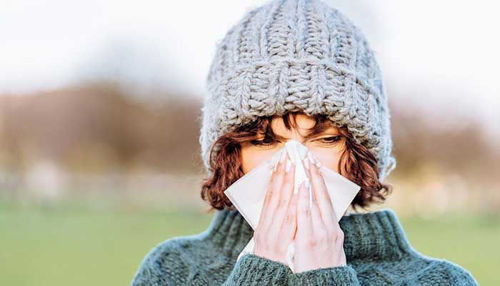
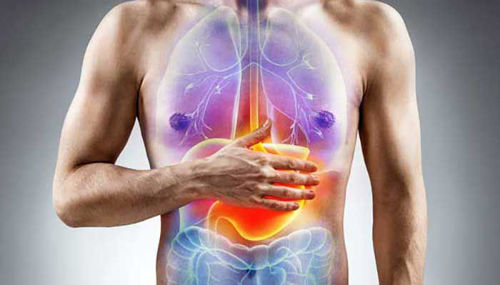
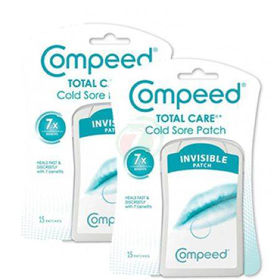
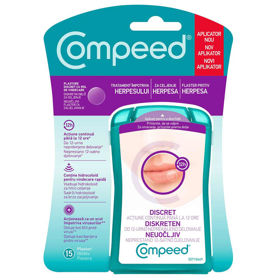
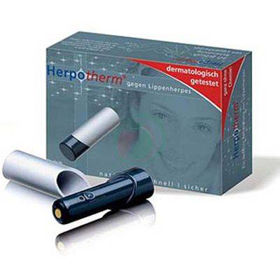
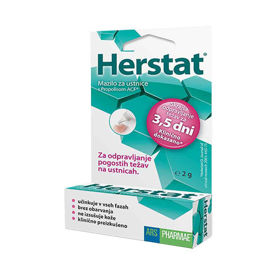

 Facebook
Facebook
 Instagram
Instagram
 info@moja-lekarna.com
info@moja-lekarna.com

